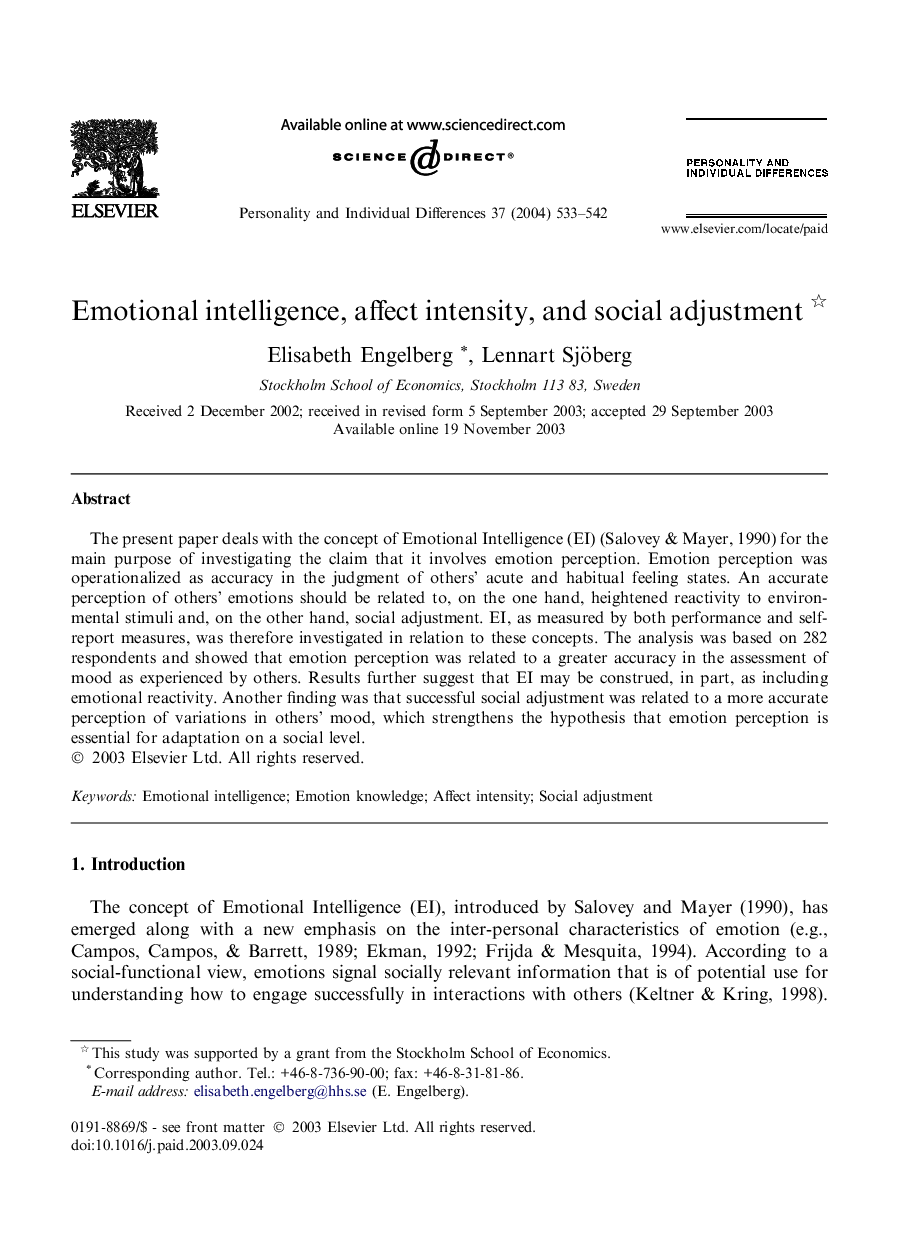| Article ID | Journal | Published Year | Pages | File Type |
|---|---|---|---|---|
| 10441484 | Personality and Individual Differences | 2004 | 10 Pages |
Abstract
The present paper deals with the concept of Emotional Intelligence (EI) (Salovey & Mayer, 1990) for the main purpose of investigating the claim that it involves emotion perception. Emotion perception was operationalized as accuracy in the judgment of others’ acute and habitual feeling states. An accurate perception of others’ emotions should be related to, on the one hand, heightened reactivity to environmental stimuli and, on the other hand, social adjustment. EI, as measured by both performance and self-report measures, was therefore investigated in relation to these concepts. The analysis was based on 282 respondents and showed that emotion perception was related to a greater accuracy in the assessment of mood as experienced by others. Results further suggest that EI may be construed, in part, as including emotional reactivity. Another finding was that successful social adjustment was related to a more accurate perception of variations in others’ mood, which strengthens the hypothesis that emotion perception is essential for adaptation on a social level.
Related Topics
Life Sciences
Neuroscience
Behavioral Neuroscience
Authors
Elisabeth Engelberg, Lennart Sjöberg,
